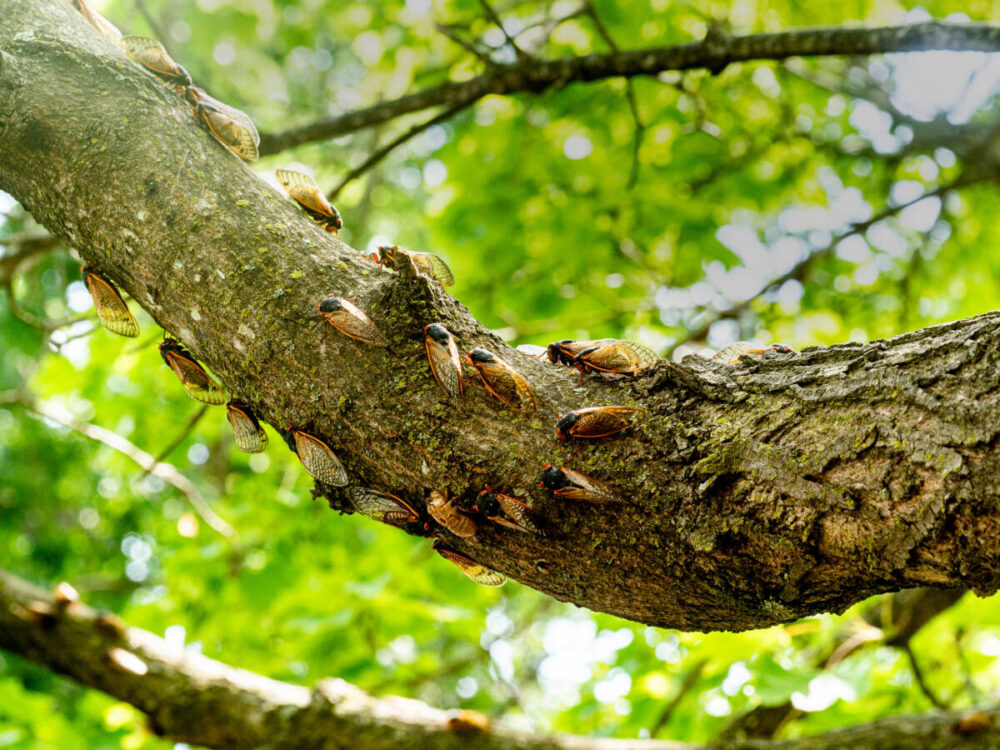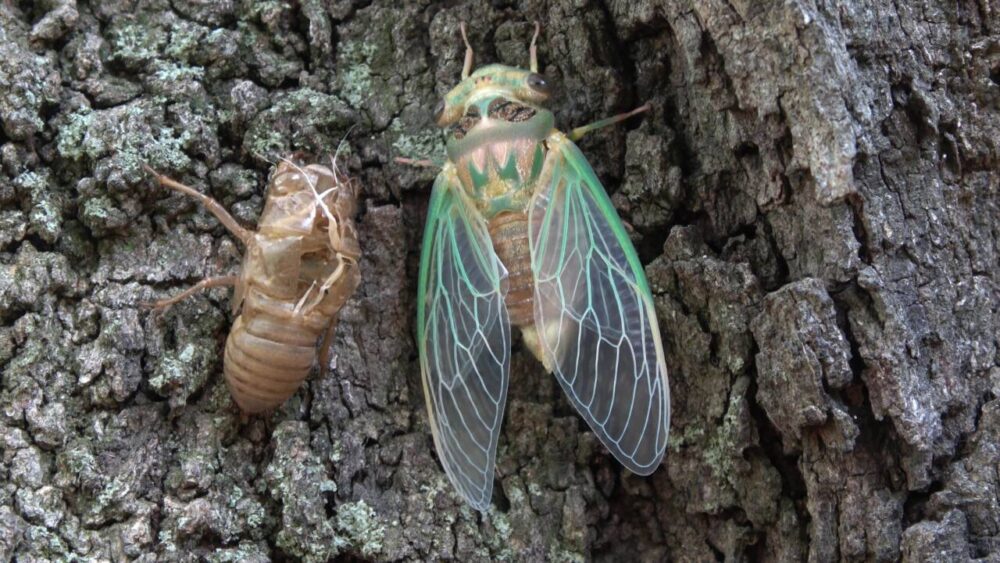With their stout bodies (1 to 1 ½ inches long!) and loud buzzing, cicadas are hard to miss. And in a few weeks’ time, residents of quite a few U.S. states will be seeing quite a few of them.
In what entomologists call a dual emergence, two different groups (aka broods) of cicadas are completing the underground phase of their life cycle and coming above ground to mate.
Brood XIII cicadas are on a 17-year cycle, and Brood XIX cicadas are on a 13-year cycle, so they usually don’t emerge at the same time. But they do emerge together once every 221 years. The last time it happened was 1803, and the next time it’s happening is as soon as a few weeks from now.
MORE: Do cicadas bite? Prepare for spring’s incoming swarm with these tips
Exactly when they come above ground may vary depending on the warmth of the location. We can expect them sometime in May or early June in more northern locations, but in some southern states it may be late April.
Regardless, this means that literally trillions of cicadas will be appearing almost at once. And that leads us to ask a trillion dollar question: How long do cicadas live above ground?

How Long Do Cicadas Live Above Ground?
Periodical cicadas live either 13 or 17 years, and the vast majority of cicadas’ lifespans are spent underground. Once they emerge, they stick around for just a matter of weeks. How many weeks depends on the weather conditions for mating.
The more southern group, Brood XIX, is anticipated to emerge in late April to mid May, while the midwest group, Brood XIII, is expected to appear from mid-May into June, according to the experts at University of Missouri Extension.
“Once cicadas emerge from the soil, they will immediately find a suitable place in which to molt to transform into adults,” Nancy Troyano, Ph.D., a board-certified entomologist, told Prevention. During this brief molting period, the wingless juveniles (or “nymphs”) shed their skin, and they develop wings and a hard exoskeleton. (See photo below.) For the next several days, they’ll stay put in trees or other vegetation as they wait for this process to be completed.
About a week after they emerge, the males fly into tree canopies and begin to chirp their high-pitched mating song to the females. If you live in an area with cicadas, you’ve probably heard them. Males have relatively hollow abdomens, which amplify their calls like an echo chamber.
Females respond to the males’ call by flicking their wings. Once they’ve mated, they lay their eggs in small openings in tree branches, George Washington University entomologist John Lill told Reuters.
The adult cicadas die after reproducing. The average time they’re above ground is about a month — but the timing can vary. According to the Smithsonian Museum of Natural History, adults live just three to four weeks total above the ground, while National Geographic puts that number at about five weeks. Meanwhile, the eggs develop for about six to seven weeks until they hatch. The nymphs then drop from the trees and burrow into the ground, and the cycle begins again.

Where Periodical Cicadas Will Emerge in 2024
One important fact to keep in mind is that these two broods will emerge in different geographic areas, with one group in certain Midwestern states and the other in the South and in different parts of the Midwest. As the 2024 cicada map shows, there may be just a small overlap in a section of north-central Illinois, but not by much.
Here are the states where residents can expect to hear periodical cicadas this year — though you might still hear annual cicadas where you live, just like you do every summer:
- Alabama
- Arkansas
- Georgia
- Illinois
- Indiana
- Iowa
- Kentucky
- Louisiana
- Michigan
- Mississippi
- Missouri
- North Carolina
- Oklahoma
- South Carolina
- Tennessee
- Wisconsin
- Virginia
So, how long will you be seeing and hearing these noisy insects? No more than seven weeks, and probably fewer than that.
MORE: How to get rid of cicadas, according to bug experts
How long will the cicadas be around? originally appeared on Simplemost.com


